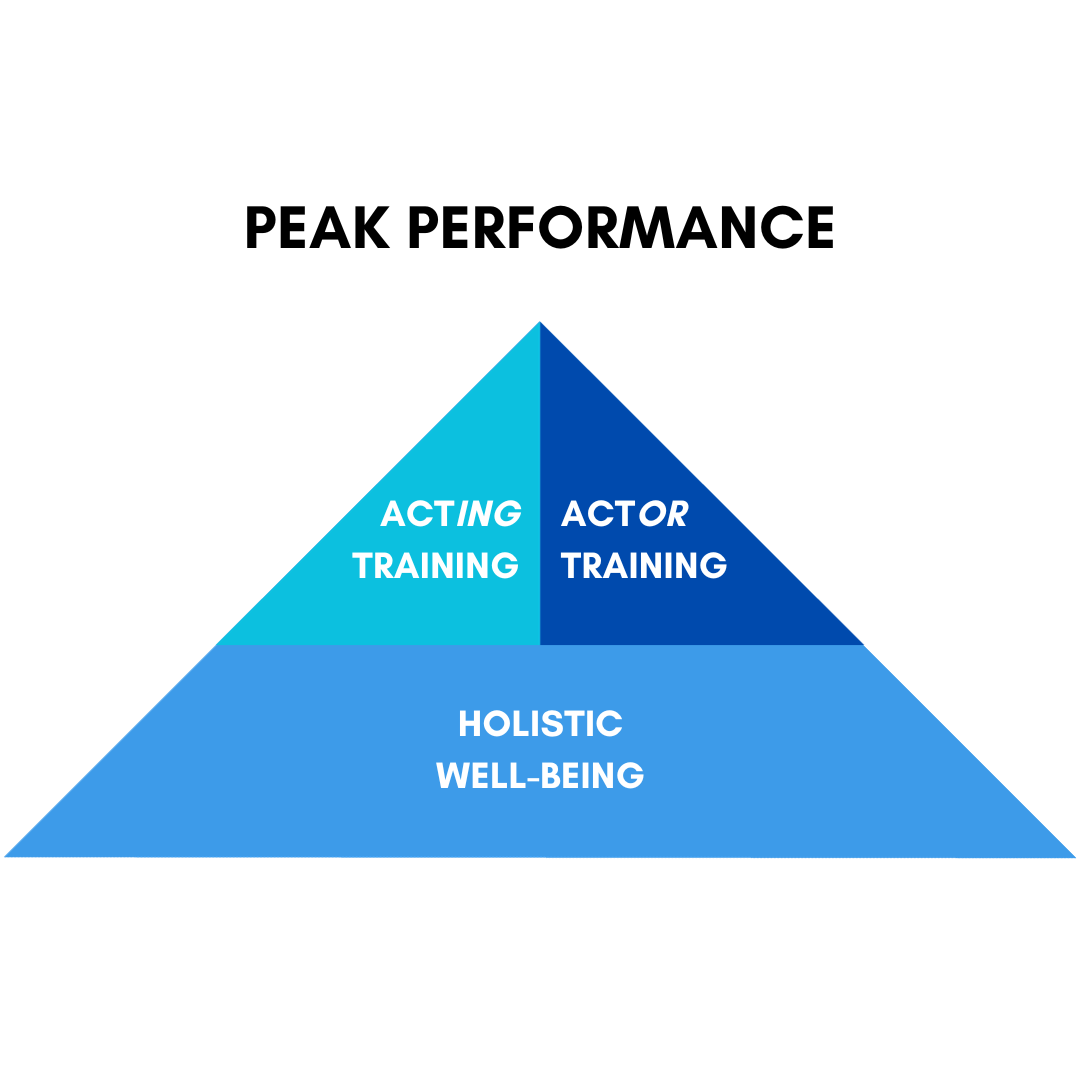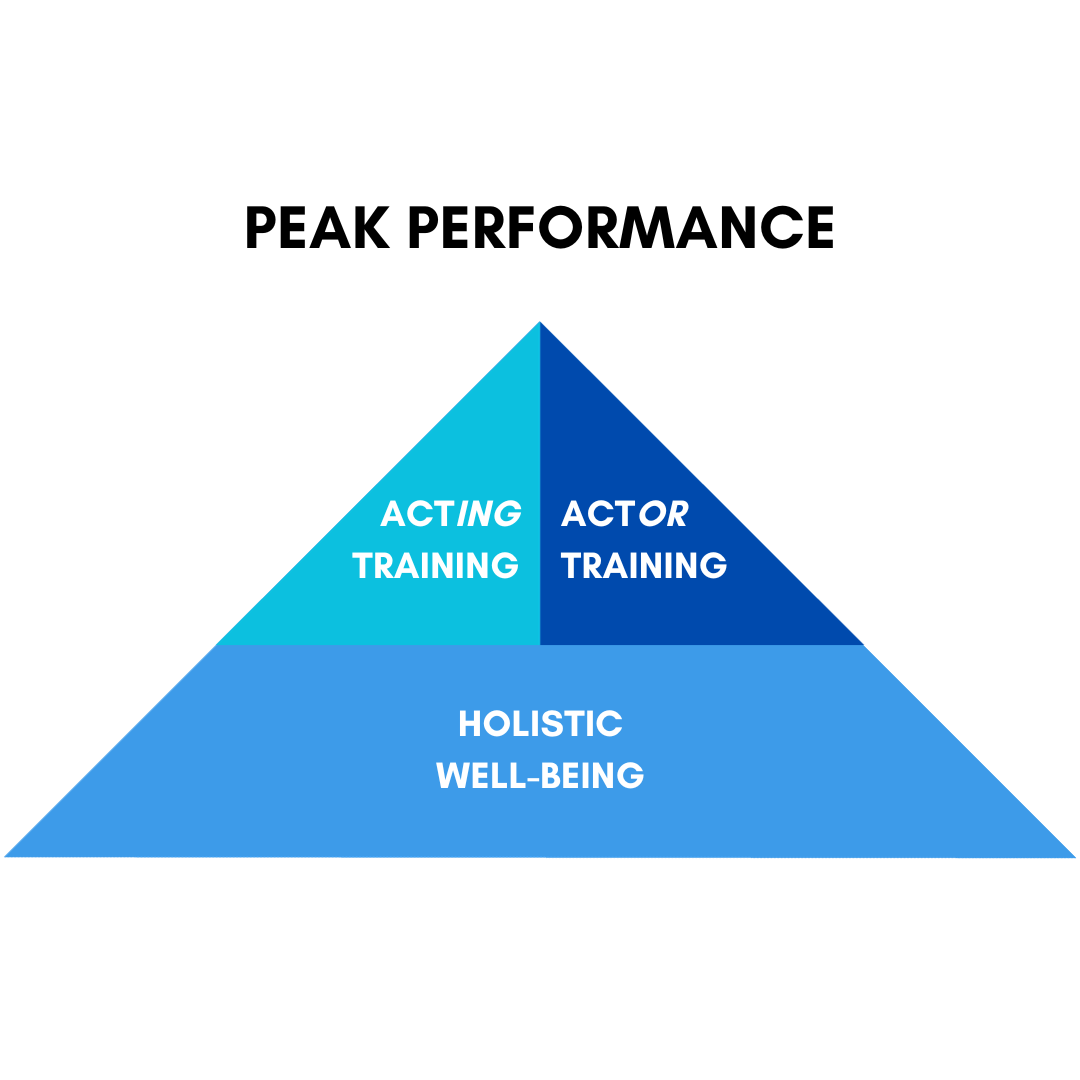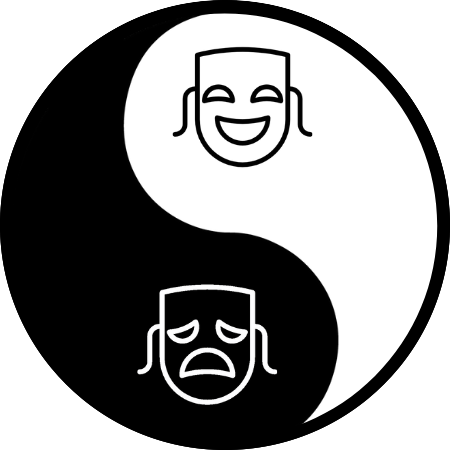A (Working) Model of Actor Thriving

Well. This is a bit exciting, 'innit?
Previously, our working model of actor thriving has been known only to Dojo coaching clients. But right here, right now, we're releasing this bad boy out into the world 🚀
We call this our "working" model because, until we have this fella scientifically verified (currently underway), we consider our framework a constant work in progress — as our badass Dojo coaching clients would well know. That said, we now have enough personal and anecdotal evidence to support where the model stands today, hence why we're cautiously optimistic it's ready to be shared more widely.
We'll keep this post as more of a 101-style intro to actor thriving than a comprehensive and complete deep dive but will link to relevant posts if you'd like to explore a specific aspect or argument further. We'll also keep this post updated as we continue to validate and refine our working model, but we figure it's sometimes better to launch at 85% and help a few extra folks along the way than wait until we've got it 100% perfect but sacrifice being of service in the meantime. We appreciate your understanding as we continue to think in drafts.
👉🏼 Monthly subscription
👉🏼 Yearly subscription (17% discount)

Holistic well-being
Our industry is FINALLY (albeit slowly) starting to appreciate that its actors need to be well in order to perform well. It's been an awful long time coming – and unfortunately, we've needlessly lost some irreplaceable individuals along the way – but the tide is turning. Thank bejeezus.
If you've been a Dojo kid for some time, you'll know we define "holistic well-being" as the dance of five factors:
- Rest (Sleep + Leisure)
- Health (Nutrition + Movement)
- Growth (Learning + Spirituality)
- Circle (Inner + Wider)
- Environment (Physical + Financial)
This component is intentionally the largest and placed at the bottom of the pyramid. We believe holistic well-being to be by far the most important, and the crucial foundation for everything else to follow.
Acting training
This is the obvious one, and the one that – until only very recently – our industry assumed was the sole prerequisite to actor thriving. We disagree. As our lil' model shows, acting technique is only one piece of the triangular puzzle (and not even the largest one).
We don't talk about acting methods a whole bunch here at the Dojo, and that's a conscious decision we made from the start. The primary reason for this stance is that‚ for the most part, current acting training is actually very good. Our research has found that the Stanislavskian-derived curriculum ubiquitous in drama schools and classes (at least in the Western world) is both reliable and reputable. In short, it works. And we ain't here to "fix" what ain't broke.
What we are uniquely placed to offer, however, is the argument that talent alone is no longer enough. If you've been on the actor's path for some time, you'll already be painfully aware of this fact.
So, whether you go the drama school route, attend weekly classes, or teach yourself from a hearty consumption of books, theatre, film, and TV, as long as you have some form of a toolkit you can trust to consistently meet the demands of various characters, stories, and productions, you should be good on this front.
Actor training
This is us. This is our bread and butter. This is our core statement: actors need psychological skills training.
As mentioned, the current curriculum of acting training has proven very effective. Yet, a curriculum of actor training has proven non-existent.
By actor training, we mean the mental training required to survive and thrive as a high-level performer. Athletes, for example, have an entire field (sport psychology) to draw on, and increasingly, circus, dance, and music performers are benefitting from similar frameworks and strategies. Is it not bonkers we haven't followed suit?
Sport psych has a suite of skills it offers its athletes, and we're in the process of discerning those with the greatest applicability and efficacy for actors. We'll update this list as we progress with our studies, but to give you a flavour of what we're experimenting with, here are a handful of the tools commonly used in other performance mediums:
- Alter egos
- Goal setting
- Pre-performance routines
- Mindfulness practices
- Mental rehearsal
- Self-talk
So:

Triangles are the strongest of all geometric shapes – capable of retaining their integrity under immense loads, stresses, and pressures[1]. A triangular model may also be the key to training for actor thriving.
Thoughts / feedback / challenges? We'd genuinely love to hear.
Need some 1-On-1 attention? Book your coaching session today.
Citations:
[1] https://sciencemadefun.net/blog/triangles-the-strongest-shape/
